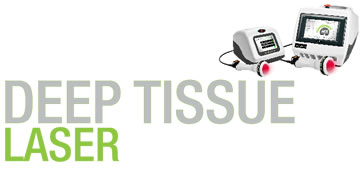Traditional Chinese Medicine
5 Acupoints to Help You Navigate Your Stress This Winter

There are several acupressure points that are known to treat stress and stress related symptoms. It’s important to understand that acupressure is not the only form of treatment and having a balanced diet, exercise regime and lifestyle will also decrease the chances of stress being a factor in your life. continue reading
Stay Healthy This Winter with a Balanced Qi

Winter’s element is water and is associated with the kidneys, which in Traditional Chinese Medicine (TCM) is considered the source of all qi and energy within the body. Winter is also associated with the bladder and adrenal glands.
Focusing on inner reflection, rest, energy conservation and storage during the winter months is when it’s most important as it helps us to properly nourish our Kidney Qi.
Below are a few methods you can learn about and apply during this season in order to maintain a balanced qi. continue reading
Five Self Care Tips for Fall

Fall is a favorite season for many people. The weather starts getting a little cooler, things are beginning to slow down and preparations for the holidays are in full swing. For many others, fall is not so festive. Many people get sick during the fall months, allergies can flare up for some, and many don’t like the steady decrease in hours of sunlight, sometimes leading to seasonal depression. Here are some tips on how to get through the season without incident. continue reading
TCM and Cystic Fibrosis

Cystic fibrosis is an inherited disease that disrupts normal function of the epithelial cells in the body. Epithelial cells line the passageways of many of our vital organs, including the lungs, liver, kidneys, reproductive system and the skin. Those who have cystic fibrosis have a defective gene that impairs epithelial cell function. This can lead to a buildup of sticky mucus throughout the body that may eventually lead to lung damage and chronic coughing, affecting how patients with cystic fibrosis breathe and filter air, digest their food and absorb the nutrients from that food. In the United States alone, there are nearly 12 million people who suffer from this disease. Unfortunately, there is no known cure and most of those affected with the disease only live into their 20s and 30s. Current modern medicine treatments focus on increasing the quality of life by managing symptoms. continue reading
4 Tips for an Energizing, Joyful Summer
In Traditional Chinese Medicine, each season is associated with one of the elements: wood, fire, earth, metal and water. Perhaps unsurprisingly, summertime is associated with the element fire. Fire represents maximum activity. In nature, everything is at its peak growth during the summer, so TCM sees our energy as its most active and exuberant. Summer is the time of year with the most yang energy, which is all about excitement and assertiveness. continue reading
Healthy Eating from Early to Late Summer
Traditional Chinese Medicine or TCM is all about balance. In this ancient system, the key to health is to move through the world in such a way that our bodies can remain in homeostasis, in balance. This idea connects to sleep patterns, what we eat and ultimately the flow of Qi, or energy, throughout the body. For that reason, healthy eating in summertime, according to TCM, is all about using cooling foods to balance out how hot it is outside. In other words, we can find homeostasis from the inside out. continue reading
Extraordinary Vessels – Chong Mai
 Most acupuncture points are located on the 12 primary channels that flow along the surface of the body. However, there are eight Extraordinary Vessels that flow more deeply in the body, and are perhaps even more powerful that the 12 primary channels. The Extraordinary Vessels regulate the 12 channels, and are deep lakes of energy, which can feed the 12 primary channels when they are depleted. continue reading
Most acupuncture points are located on the 12 primary channels that flow along the surface of the body. However, there are eight Extraordinary Vessels that flow more deeply in the body, and are perhaps even more powerful that the 12 primary channels. The Extraordinary Vessels regulate the 12 channels, and are deep lakes of energy, which can feed the 12 primary channels when they are depleted. continue reading
Extraordinary Vessels – Dai Mai
 In addition to the 12 main acupuncture meridians that flow along the surface of the body, there are also deeper channels of energy in the body called the Extraordinary Vessels. You can understand the relationship between the primary acupuncture channels and the Extraordinary Vessels by thinking about what happens when it rains: first, small ditches become full – these are the collateral vessels that break off of the 12 main channels. Next, the reservoirs become full, which are the 12 primary channels. When they are full, they overflow into the Extraordinary Vessels, which are deep and vast lakes of energy within the body. continue reading
In addition to the 12 main acupuncture meridians that flow along the surface of the body, there are also deeper channels of energy in the body called the Extraordinary Vessels. You can understand the relationship between the primary acupuncture channels and the Extraordinary Vessels by thinking about what happens when it rains: first, small ditches become full – these are the collateral vessels that break off of the 12 main channels. Next, the reservoirs become full, which are the 12 primary channels. When they are full, they overflow into the Extraordinary Vessels, which are deep and vast lakes of energy within the body. continue reading
4 Lifestyle Tweaks to Thrive this Spring
 In traditional Chinese medical theory, one of the best ways to stay healthy is to live in balance with the seasons. Balance, in this context, means mindfully crafting your diet and certain aspects of your lifestyle based on what season it is.
In traditional Chinese medical theory, one of the best ways to stay healthy is to live in balance with the seasons. Balance, in this context, means mindfully crafting your diet and certain aspects of your lifestyle based on what season it is.
An easy way to think about this is with fruits and vegetables: we are lucky these days to have grocery stores stocked year round with fruits and vegetables from every corner of the globe at all times of year. That makes it possible to enjoy asparagus into the winter months in northern climates where asparagus would never naturally grow at that time of year if at all. Chinese medical thought prescribes realigning our diets with what would be available to us in the region where we live and at each time of year. continue reading
Eating Well for Springtime

Traditional Chinese medicine says aligning your diet with the seasons is one of the best ways to stay healthy. Mother Nature provides exactly what we need to be healthy. Paying attention to the fruits, vegetables and herbs that grow during different seasons in the region where you live is a great way to incorporate the philosophies of traditional Chinese medicine into your own life and access greater healing. continue reading

